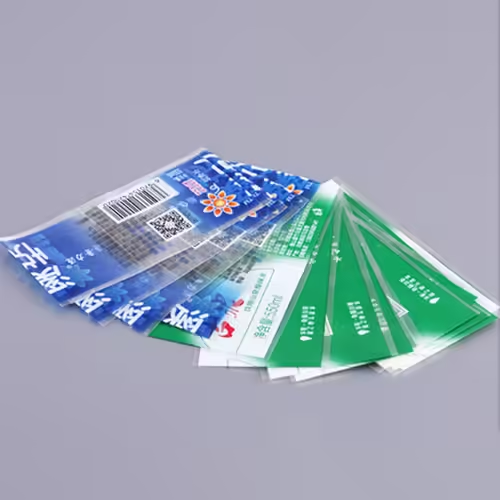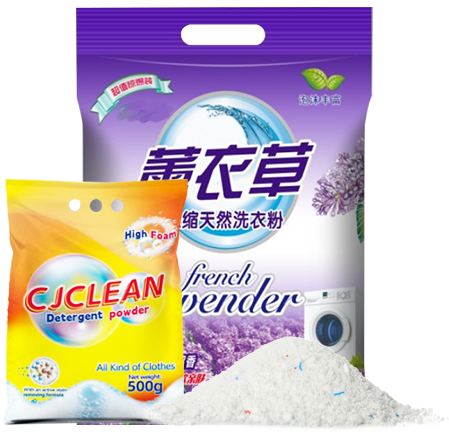Оглавление
Введение

In recent years, shrink labels have become a popular packaging solution for various products such as food, cosmetics, and household goods. These labels offer a sleek, professional appearance while providing additional protection for products. However, with growing consumer concerns about health and safety, many are questioning whether shrink wrap labels are suitable for human contact, particularly when used on products that come into contact with skin or are ingested.
Shenlong is committed to providing high-quality packaging solutions for the personal care, household, and hygiene industries. We deeply understand the importance of both packaging safety and aesthetics. To uphold our commitment to transparency and consumer well-being, we will explore the safety of shrink labels in this article.
Являются Термоусадочные этикетки Non-Toxic?
When it comes to packaging products that come in direct contact with skin, it’s crucial to ensure that the materials used are safe and non-toxic. Shrink labels are primarily made from materials such as PVC (polyvinyl chloride), PET (polyethylene terephthalate), or OPS (oriented polystyrene).
For most consumer goods, PVC shrink labels are common, but concerns over the potential health risks of PVC, especially when exposed to high temperatures or moisture, have emerged. Chemicals like phthalates and BPA (Bisphenol A), found in some PVC-based shrink wrap labels, can leach into the product or environment, potentially posing risks to health.
However, many manufacturers today are producing PVC-free and BPA-free shrink wrap labels, offering a safer alternative. PET-based shrink wrap labels, in particular, are widely considered safer as they do not contain these harmful chemicals. For consumers concerned about the safety of materials touching their skin, opting for these alternatives is an excellent choice.
The Environmental and Health Impact of Термоусадочные этикетки

In addition to health concerns, there is growing awareness about the environmental impact of shrink labels. The majority of shrink labels are made from non-biodegradable materials such as PVC, which can remain in landfills for years. In some cases, improper disposal of shrink wrap labels can lead to harmful chemicals leaching into the environment, which can have indirect health effects.
To counteract this, many companies are embracing more eco-friendly materials like biodegradable shrink wrap labels and materials that are easier to recycle. Consumers are becoming increasingly health-conscious and environmentally aware, demanding sustainable packaging that minimizes harm to both personal well-being and the planet.
Are Shrink Labels Safe for Food Packaging?
Shrink labels are widely used in food packaging, and it’s crucial to ensure that the labels are safe for this purpose. In many countries, food packaging is tightly regulated to ensure that materials do not contaminate food products. The FDA and other global standards require that packaging, including shrink wrap labels, be made from food-safe materials that do not leach harmful chemicals into food.
For food-related products, using food-grade shrink wrap labels made from PET or other approved materials is a common and safe practice. These materials are rigorously tested for safety and have a low risk of chemical migration, providing peace of mind to consumers. However, it’s still important to ensure that the labels are free from harmful chemicals like BPA or phthalates, which can be a concern for health-conscious buyers.
Table: Comparison of Common Shrink Label Materials
| Материал | Safety for Skin Contact | Health Concerns | Воздействие на окружающую среду | Recycling Potential |
|---|---|---|---|---|
| ПВХ | Moderate (may contain phthalates) | Potential chemical leaching | Non-biodegradable | Низкий |
| ДОМАШНИЙ ПИТОМЕЦ | Safe, commonly used in food packaging | Low risk of chemical migration | Recyclable and biodegradable | Высокий |
| ОПС | Safe for skin and food contact | No known health risks | Non-biodegradable but recyclable | Умеренный |
| Биоразлагаемый | Safe for skin contact | Non-toxic | Биоразлагаемый | Высокий |
Can Shrink Labels Cause Allergies or Skin Irritation?
One concern for some consumers is whether shrink labels can cause allergic reactions or skin irritation. While the materials used in shrink wrap labels are generally considered safe, there is always a small risk for individuals with sensitive skin or allergies. Certain chemicals used in the production of shrink labels, such as adhesives or inks, may cause irritation or reactions in sensitive individuals.
To minimize this risk, it’s important to choose products with shrink wrap labels made from hypoallergenic, non-toxic materials. Many brands now offer products with safe, non-irritating labels designed for sensitive skin, making it easier for consumers to make safe choices.
Healthier Alternatives to Shrink Labels

For consumers who are concerned about the health risks associated with shrink wrap labels, there are several alternatives. Paper labels, for example, are a popular choice for companies looking for eco-friendly and safe packaging solutions. Paper labels often use natural adhesives and inks, which can reduce the risk of exposure to harmful chemicals.
Another promising alternative is recyclable shrink sleeves made from non-toxic materials such as PLA (polylactic acid), a biodegradable plastic derived from renewable resources like cornstarch or sugarcane.
Заключение
In summary, while shrink labels have been widely used in packaging for years, safety concerns remain critical for consumer health and the environment. It is essential to ensure that materials used in shrink wrap labels—such as PVC and PET—are non-toxic and free from harmful chemicals like BPA and phthalates.
В Шэньлун, we are committed to providing safe, sustainable, and high-quality packaging solutions, prioritizing consumer health above all else. We understand that packaging is not merely about aesthetics but also about safeguarding the safety and well-being of every customer. When selecting shrink labels for your products, always choose materials that meet safety and environmental standards.
Часто задаваемые вопросы
Являются shrink labels safe for skin contact?
Yes, shrink wrap labels made from non-toxic materials such as PET are safe for skin contact. However, some PVC-based labels may contain harmful chemicals like phthalates.
Can shrink labels cause allergic reactions?
While shrink wrap labels are generally safe, certain adhesives and inks may cause irritation or allergic reactions in sensitive individuals. Choose hypoallergenic, non-toxic options for added safety.
What are the best alternatives to PVC-basedshrink wrap labels?
Biodegradable materials like PLA, or eco-friendly paper labels, are excellent alternatives to PVC-based shrink wrap labels. These options reduce both health risks and environmental impact.

